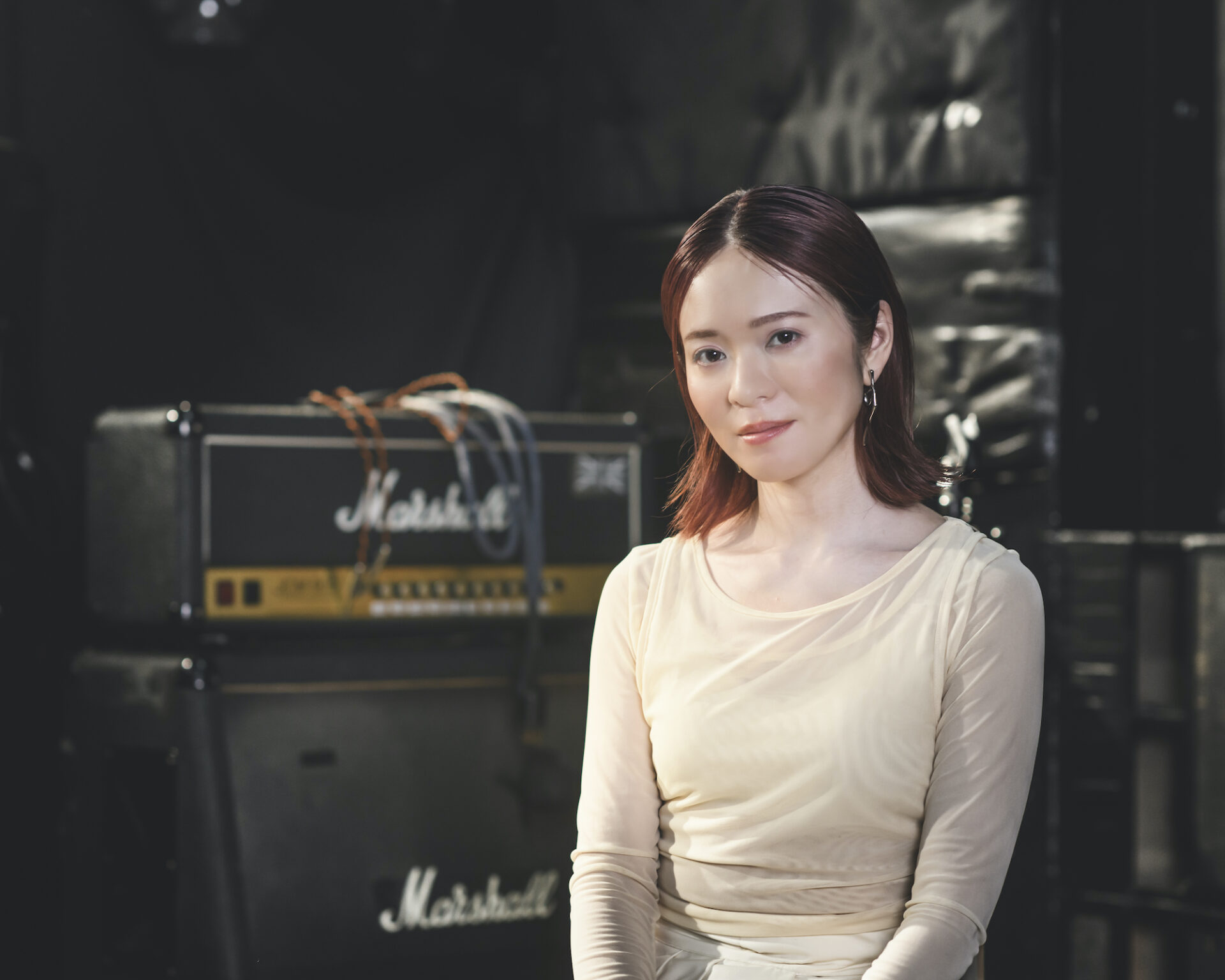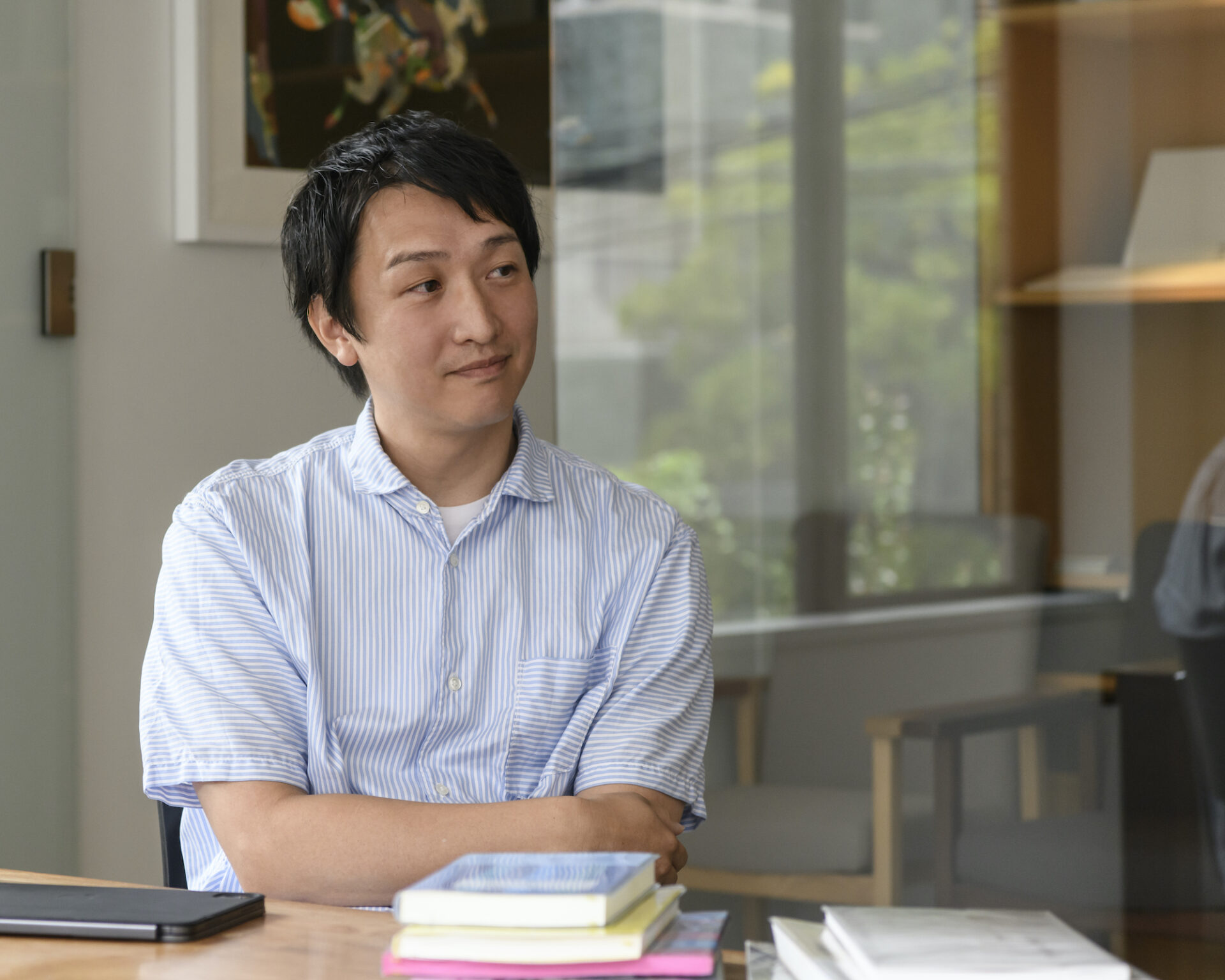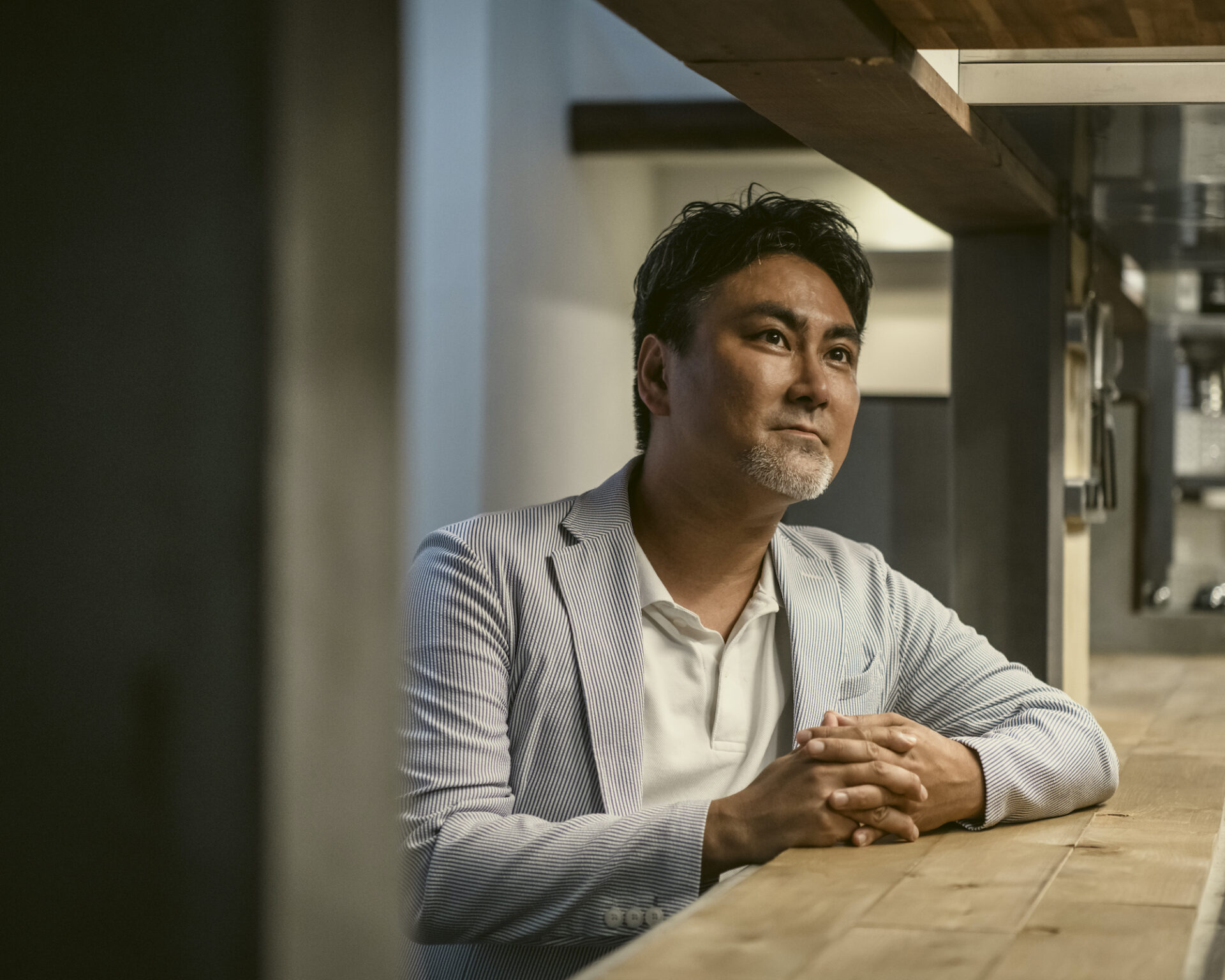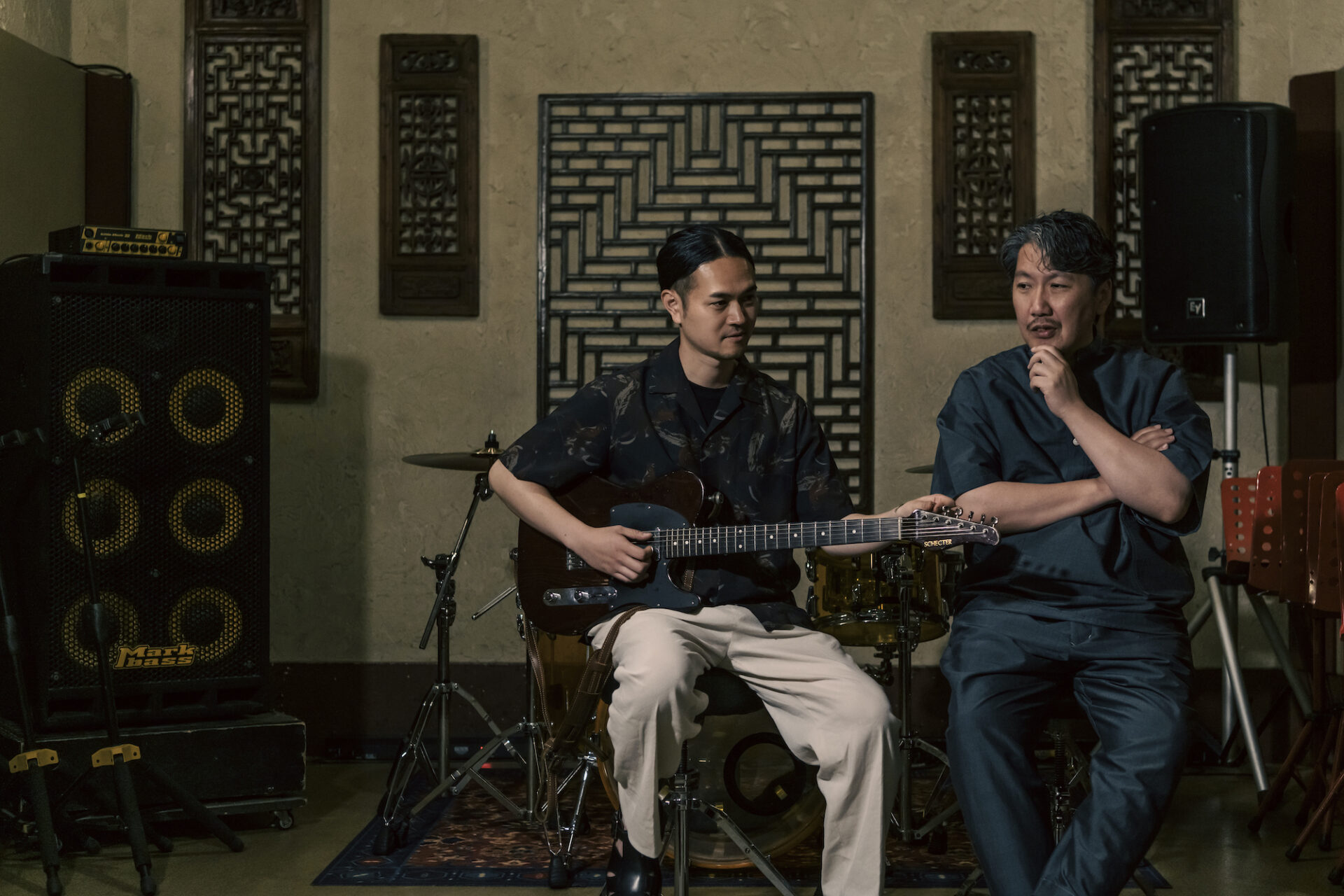
2024-07-20
Vol.8
Musician and Administrative Scrivener
Nobuyuki Takeda
-
Music and Passion
-
"Co-Creation" Business Model to Change Monetization Process
-
The Future of Music Brought by Web3 Technology
-
From Subscription Model to Equivalent Exchange Model
-
Thoughts on the Word "Talent"
There are not a few people who have experiences of giving up what they want to do because of money. Nobuyuki Takeda, the guitarist in the instrumental rock band “LITE,” is also active as an administrative scrivener, a legal profession in Japan that supports a variety of procedures with the governmental entity. He proposes the option of a “parallel career” to avoid “giving up.” In his book Musician No Tame No Okane No Seminar (Money Seminar for Musicians), Takeda described his thoughts on life and provided a how-to for applying for subsidies and grants for creative activities. The book offered a “parallel career” as an alternative way of life for artists who were deprived of the opportunity to express themselves during the COVID-19 pandemic. The two genuine music lovers talked about the position of the Japanese music scene in the world, possible new forms of monetization in the music industry, and the power of co-creation to cultivate diverse cultures.
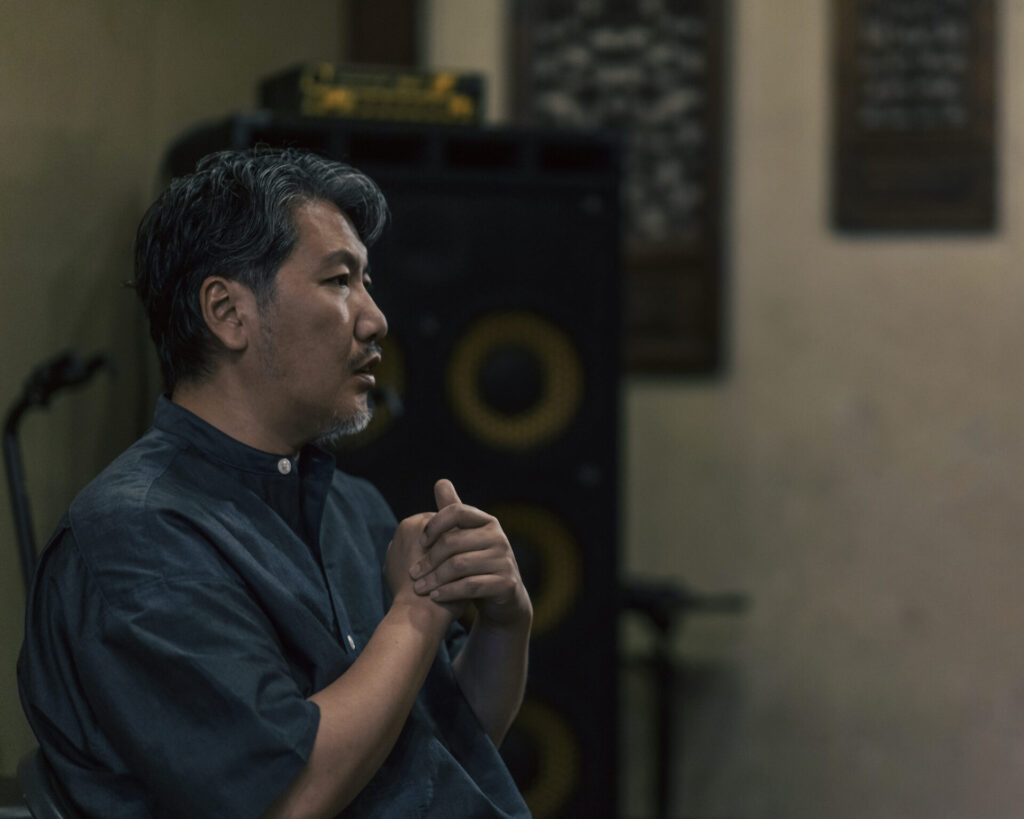
“I have always thought about how Japanese cosmetics brands should compete internationally.” (Shigeta)
Masakazu Shigeta: Recently, I have always thought about how Japanese cosmetics brands should compete internationally. Japanese culture attracts less attention in Asian cities like Bangkok these days. However, when I went to Italy this April, I received the impression that Japanese culture still enjoyed a certain level of recognition. So, I am very much interested in how LITE, which just finished its European tour, gained popularity in Europe.
Nobuyuki Takeda: There are several layers also in Japanese culture, from major ones like YOASOBI to the subculture. The subculture has always had a certain reputation there, and I think such background is one of the reasons why we gained attention when we toured Europe for the first time.
Then, more than ten years after the first tour, what we feel now is not the rapid increase in the fans but the generation change of audiences. The audience has become one generation younger than before. For young people in their teens or early twenties, a band that has been active for 20 years is that of the old school. They come to the live performance with the expectation that they can watch something “rare.” I feel the number of people in the audience with such an attitude has increased.
Shigeta: How do people overseas come to know about LITE?
Takeda: In the past, they came to know us through influential labels. Nowadays, most of the time, they reach us after tracing their favorite artists and realizing that LITE influenced the artist.
Shigeta: It is common for people to drop into a live music venue overseas. I assume there are many cases when people stop by a venue, LITE happens to be playing, and the sound attracts them.
Takeda: Yes, there are many cases like that. In contrast to Japan, where live music venues are run independently, in Western countries, they are often attached to bars. We frequently have first-time customers who originally came to the bar for drinking but got lured in by the lively performance upstairs.
——Mr. Takeda, you also toured North and South America. How was the atmosphere there?
Takeda: North America is more energetic, and South America is at the highest level. I even saw a food stand grilling meat in an enclosed venue. (Laughs)
Shigeta: The other day, I met Mr. Ryo Tsutsui, an internationally active DJ. He told me a story about his experience in Chile when he went there for a music event. On the very night of his arrival, he encountered a significant earthquake. Everybody from Japan thought the event would be canceled, but three days later, it was held as a “reconstruction party” and turned out to be a grand music festival.
Takeda: That is a great story. Everybody must have been excited.
Shigeta: People there are very aggressive in moving their bodies to the music, which shows how much they value it. It is said that pop music born in the 20th century originates in Africa. The sound and music were conveyed to South America in the context of slavery, and such historical background has something to do with the fact that the music intrinsically contains passion against oppression. The music later went north to the Southern U.S., bringing birth to blues and jazz. The deeper you trace the roots and the primitive point, the more indispensable it becomes. I believe that is what music means to them.
Takeda: Right. Music is not just an entertainment for them.
Shigeta: I feel it is more like a part of the religious events to them.
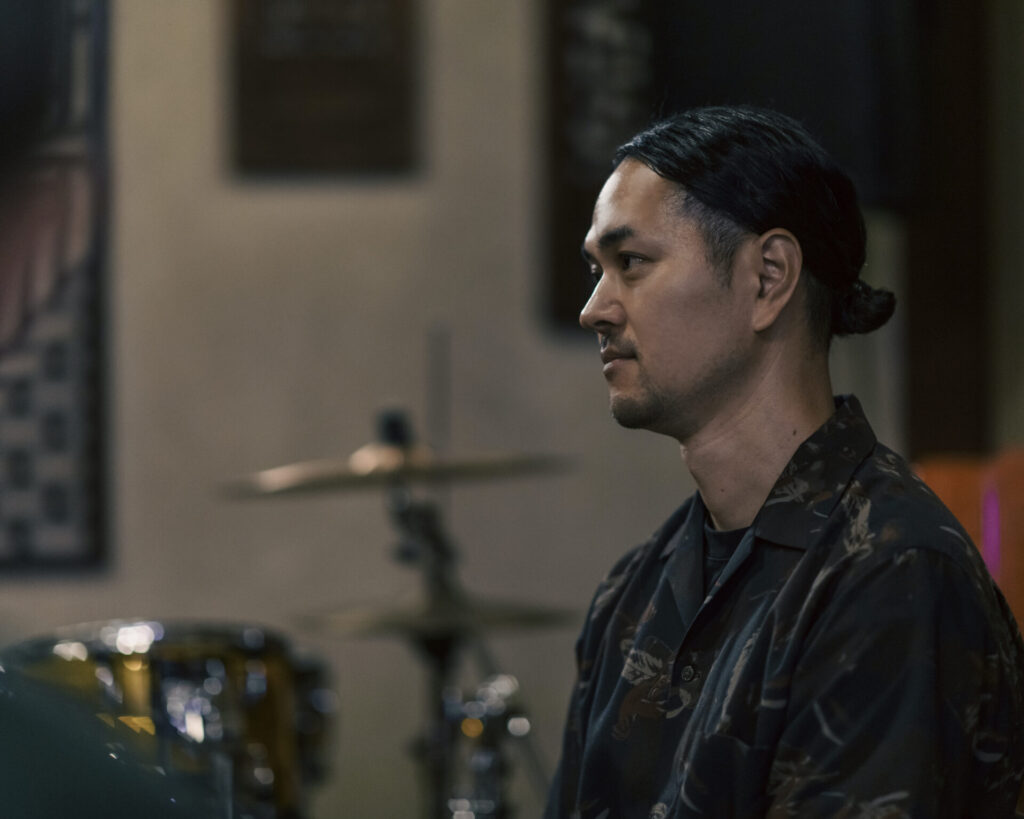
“By bringing the relationship of creators, viewers, and patrons, that supported the development of art, into the music world, the way money flows will also change.” (Takeda)
Shigeta: This is not limited to Africa or South America, but music inherently belongs to citizens, and everybody has the right to enjoy it. Nowadays, it is natural for people to enjoy music as a part of their lifestyle or lifework, and sharing the music they created has become easier. However, the music industry in Japan has become one of vested interest, and the pressure to prevent natural spread is very strong.
So, to discuss this point with you today, I brought a book titled Marketing Lessons from the Grateful Dead: What Every Business Can Learn from the Most Iconic Band in History.
Takeda: I have read it before, too.
Shigeta: The Grateful Dead allowed their fans to exchange cassette tapes containing the sound of their live performance, and it became a status for fans to distribute high-quality tapes. By allowing their music and sound to spread naturally in that way, the Grateful Dead acquired tremendous status. This kind of phenomenon would never happen in Japan.
Takeda: Right. Fans are not allowed to record and edit artists’ performances in Japan.
Shigeta: We live in an era where spreading the word on SNS is said to be the best marketing method, but recording sound inside the venue is usually prohibited. I believe this is outdated. Even if you do music as a part of a parallel career, having a certain income is undoubtedly better than nothing since you put time and effort into it. Overall, my question is, where will the monetizing point be for musicians in the future? Considering only economic rationality, continuing a music career doesn’t pay at all.
Takeda: I agree with you. Although some artists sell exceptionally well by a single tactic, such as providing tie-in songs for anime or going viral on SNS, only some enjoy such success. On the other hand, if you look at the pyramid of musicians, the bottom layer has tremendously expanded. As a result, the pyramid has an edgy and distorted shape now.
Honestly, I don’t have a clear answer for how the music industry’s monetization will change in the coming years. However, I vaguely feel that there will be a “cohesion” in the relationship between artists and fans. The image is that those who share the benefits and cooperate with each other will come into the circle more and more in the future. If we can bring the give-and-take relationship of creators, viewers, and patrons, which supported the development of art, into the music world, the way money flows will also change.
Shigeta: That is exactly what “co-creation” means. Thinking about the future, it is the right idea to create new value by collaborating with others.
It is also correct from the viewpoint of economic rationality.
Actually, we often discuss branding and co-creation in internal company meetings. I understand the opinion that we should improve our strengths rather than collaborate with other companies, but I believe it is an old idea because open innovation is essential for business in the future. Since we are in an era where people’s desire for material consumption has diminished, we have to consider what kind of things will attract people. I believe it should be created only through value sharing and mutual cultural understanding, and open innovation is the key. I just told in a meeting yesterday that “Trying to maintain brand value only by one’s unique value is an idea of 20 years ago, and it is an old-fashioned way of thinking.”
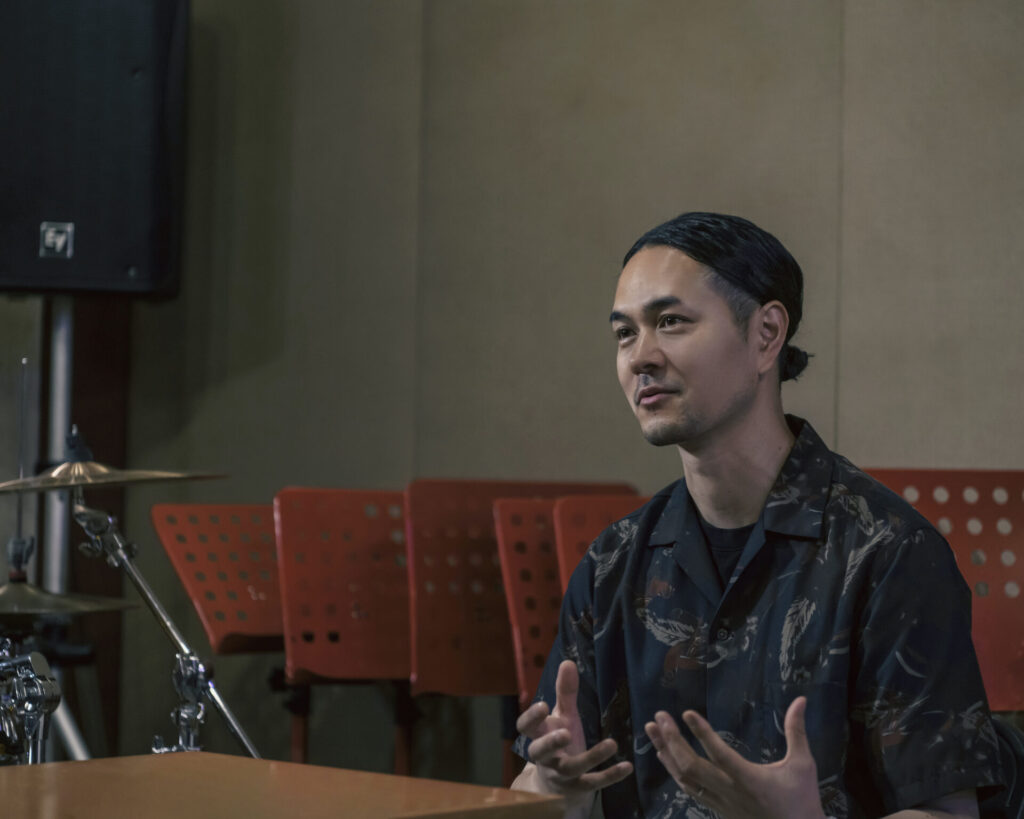
“My underlying goal is to become the bridge between musicians and the economy and build up an infrastructure where the two stimulate each other.” (Takeda)
Shigeta: I am a person who gave up doing music because of money, and my career changed from that of an artist to that of a recording engineer. In the late 90s, when I worked as a recording engineer, the music industry was enjoying its heyday with many million sellers from tie-in songs for TV dramas and commercials. However, while the industry as a whole was eager for another million sellers, those who had been making music with good taste were pushed into the corner. Seeing the situation, I wondered what kind of career I should take to support such artists and prevent them from losing their way. That is one of the reasons why I quit my career as a recording engineer and opened a live music venue in Gunma prefecture.
But that place went bankrupt after a year. I tried many things to make sales, such as making it available for recording in the daytime or making Thai-style curry to sell in a cafe, but it didn’t work to keep the business. Through this experience, I decided to become a business owner who could properly run the economy. I thought, with the position as a business owner, I would be able to do something someday. That is when I came across cosmetics as a business.
When I encountered it, I had a strong sympathy for the relationship between Mr. Yoshiharu Fukuhara, a former president and chairperson of the Shiseido Company, and Mr. Sadao Watanabe, a Jazz musician.
Although their relationship was that of a manager and a musician, I felt their motivation to co-create a better culture. One of my goals as a manager is to create such a partnership.

Takeda: What you just said has made me realize our similarities. I guess you built the live music venue by considering the ecosystem of musicians. Musicians at the time were overwhelmed with anxiety, seeing the change of environment where music was changing from works to products, and you wanted to provide a place and opportunity with them.
One of the main reasons I decided to obtain the administrative scrivener license is to help people struggling to make a living while continuing their music career. I want to help them find options, like starting a business, and let their economy keep working. Some say the relationship between the economy and musicians doesn’t get along well. Still, my underlying goal as an administrative scrivener is to become the bridge between the two and build up an infrastructure where the two stimulate each other.
Then, how can we create such an infrastructure? I sense potential in technologies like Web3. Using blockchain technology, we can secure transparency and reliability. Unlike a mere community, the technology will provide all the records and history of their activities and relationships. For example, it will also make contacting LITE easier for artists who want to go on a European tour. I envision a future where Web3 brings more and more spontaneous collaboration. Beyond the environment with Web3, where people benefit each other, there will be a new way of monetization.
Shigeta: So, do you think it will be possible to replace the traditional business style based on a master license?
Takeda: Yes. We can do something even under the current copyright law by utilizing technologies like NFT. In fact, several startups overseas are doing something similar. However, I wouldn’t say they have worked out well so far. Do music and NFT fit together well? This question has yet to be answered, and we are still in the trial phase. However, blockchain technology, which is one layer lower than NFT, will surely work.
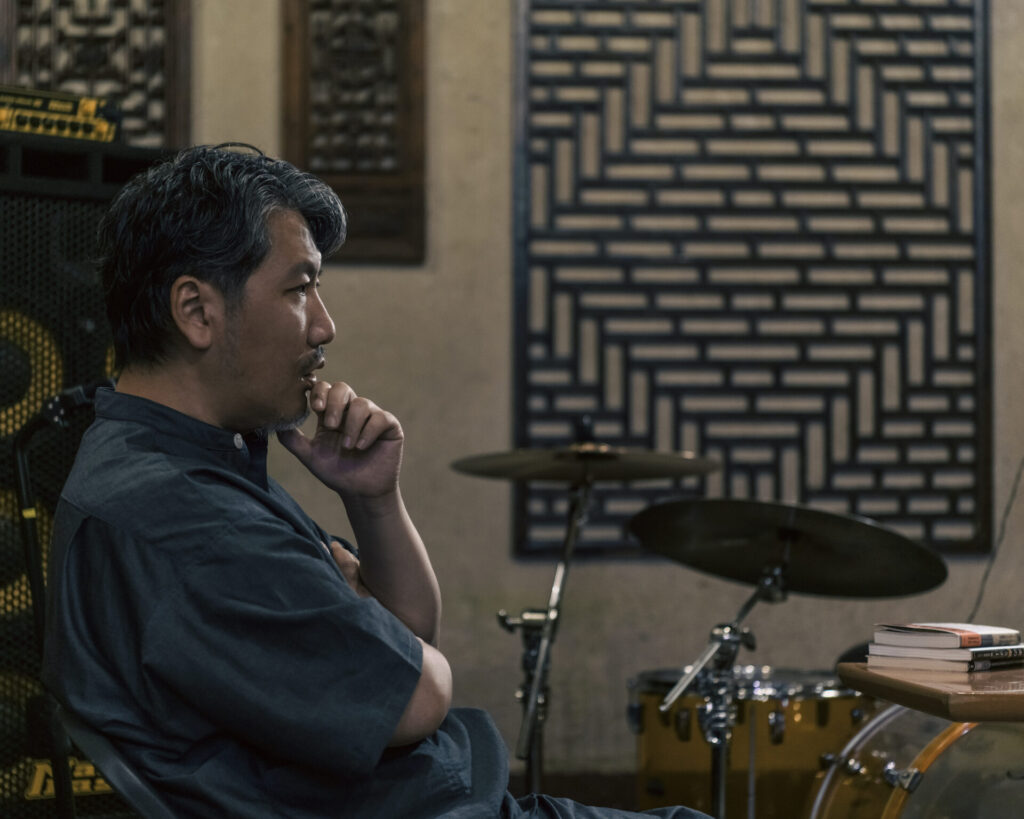
“The number of downloads and views does not equal the value of musicians. If we regard those two as equal, diversity will disappear rapidly.” (Shigeta)
Shigeta: It is not limited to music, but I am interested in how the act of buying and paying will change in the future. Among several possibilities, I believe that “equivalent exchange” is very realistic.
Equivalent exchange is a pure act, isn’t it? Of course, not everybody has enough money to spare, and the amount one can pay varies from individual to individual. However, it is also natural that values differ from person to person, which also shows how the meaning of “economic rationality” varies between generations. In that sense, moving from a subscription style to an equivalent exchange system is not a bad idea.
Currently, services like Spotify or Apple Music offer a monthly subscription model of 1,000 or 2,000 yen. However, I believe many people would be willing to afford 10,000 yen if they could enjoy listening to their favorite music to the fullest. Instead, such people would want the platform to provide literally all music, including older works. Equivalent exchange styles have the possibility to discover such niche needs and hidden demands.
Takeda: That is a new perspective. Currently, the subscription platforms offer services at a flat fee. However, some listeners must be willing to pay more to support their favorite artists. The adverse effect of the subscription model is that such feelings and emotions do not reach the artists.
New creations will not be born from a system where the platform gets money just because it streams music. The airline industry is often given as an example of “fan-based marketing,” meaning the business is based on support by hardcore fans. I believe there should be the same system for music where the business is maintained solely through the billing of hardcore fans. I think that what makes this possible is Web3 technology, which allows the listener side to take action with the artists.
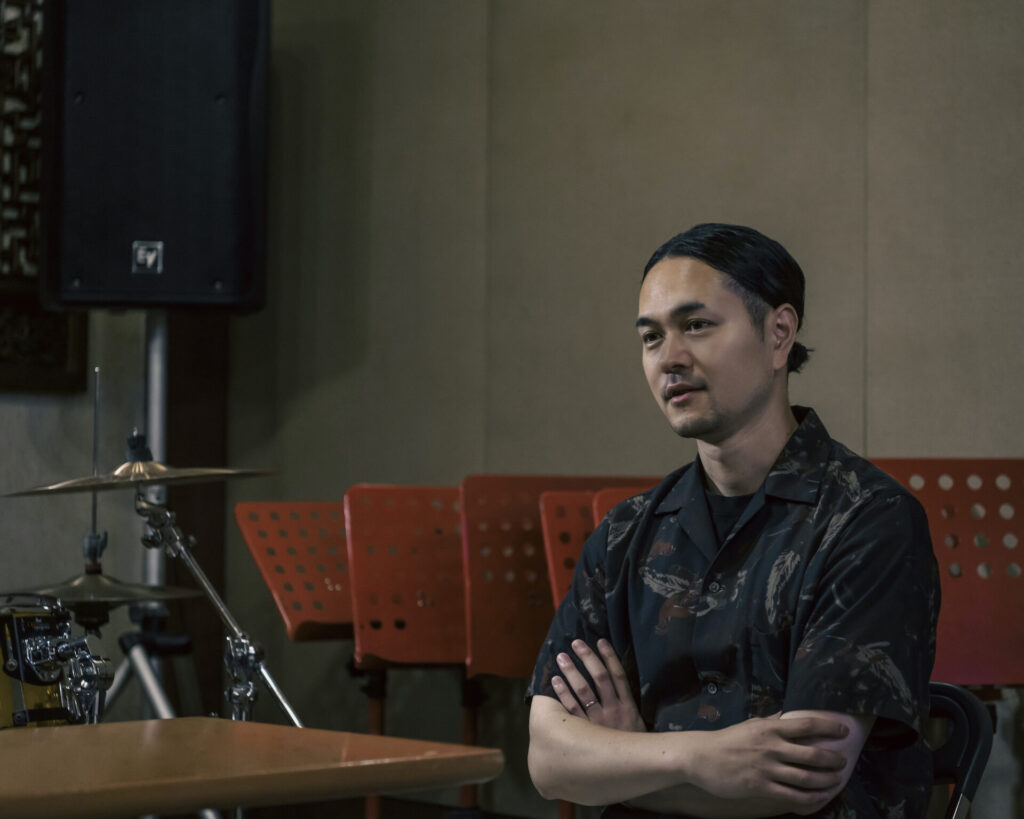
Shigeta: Can the price of music be measured by something other than the number of downloads and views? I don’t think the number of downloads and views equals the value of musicians. If we regard those two as equal, diversity will disappear rapidly.
Lately, I have often told a story about a person who monitors the forest in Nagano prefecture. When I asked why it is crucial to care about biological diversity, the person answered, “Because the loss of biological diversity all led to the demise of civilization in the past.” Due to the loss of biological diversity, mountains could no longer stock water and became vulnerable to wildfire, and many civilizations disappeared. Then, what is necessary to prevent the natural disaster? It is insufficient to have mountains filled only with large trees. The biological diversity is appropriately secured only when mountains are filled with large trees, shrubs, and weeds in good balance.
When I first heard this story, I thought the same went for the economy. The trivial trigger causes the yen to depreciate and deflation to accelerate. I wonder if the lack of diversity might have caused it. In his book Rebel Ideas: The Power of Diverse Thinking, British journalist Matthew Syed explains why the CIA failed to prevent 9/11. He says the fatal failure was caused by the organization’s loss of diversity due to the homogeneity of elite groups.
Takeda: That makes sense.
Shigeta: None of the CIA could have imagined the behavior of non-elites. The importance of diversity is such a big thing. I believe it should also be effective for economic growth and crucial to creating an affluent society. I believe the new form of interaction by Web3 technology you just mentioned will be an effective means to restore diversity in music. In that sense, I got the impression that it is one of the most cutting-edge ideas.
Takeda: Actually, I am a little concerned that diversity has been too diversified recently. In the case of music, everybody can make music on their own now, and there is a tremendous amount of music on the Internet, but not a few of them are hardly listened to at all. Undoubtedly, flowers and grasses are essential for the diversity of forests, but we have to mow them if there are too many weeds. Otherwise, we can not maintain diversity.
——Mr. Takeda, you mean you feel there are too many weeds in the current music industry?
Takeda: This might sound negative, but if we leave them as they are, it would quickly become such an environment. A large amount of information, like grains of sand, is a problem, and I wouldn’t say it is a suitable environment for creating good things. It makes no sense if many plants wither as buds before they flower.
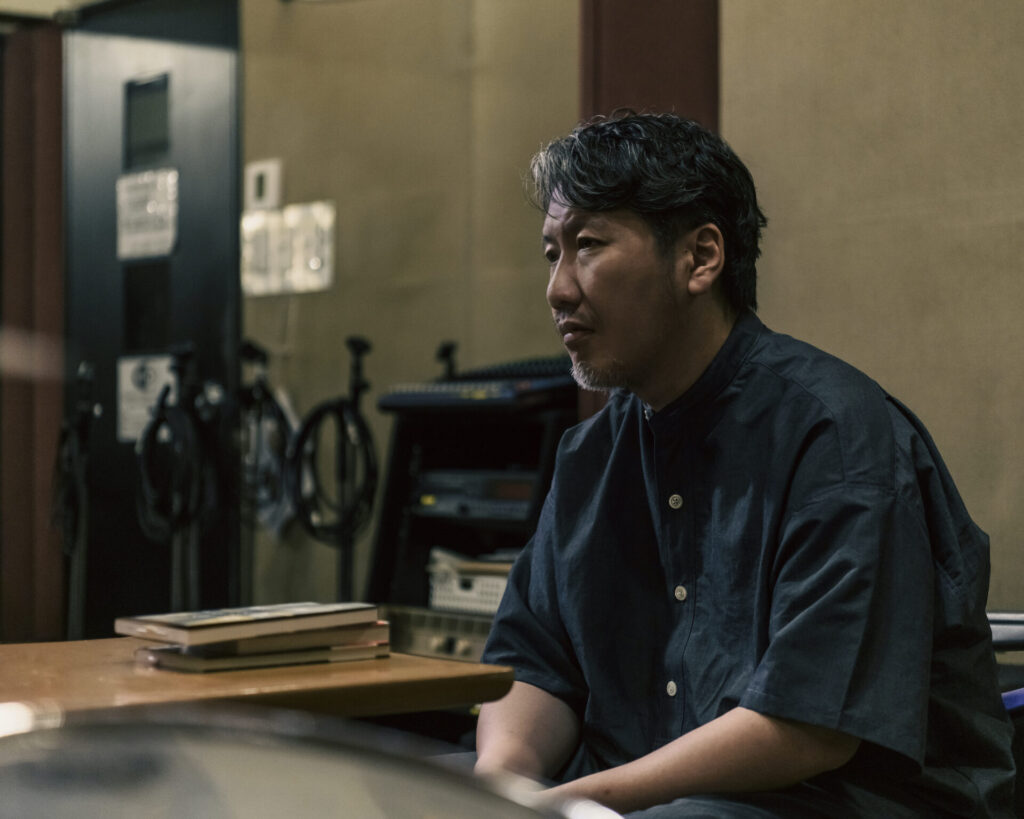
“There is a widespread misrecognition that anyone can become an artist.” (Shigeta)
Shigeta: I have gotten along with a facility called PICFA in Saga, where people with disabilities engage in creative activities. After all, the facility director is just fantastic. He says, “Some people here are not good at drawing at all, and it is wrong to assume that everybody here is an artist just because they are in the facility of art.” His opinion that, as long as you are an artist, you can not ignore “talent” is precisely correct. It is wrong to call someone an artist just because they do something creative.
Takeda: I agree with that.
Shigeta: Everybody has different talents, and diversity is respected because people have different talents. If you pretend as if you have a certain talent, you will surely lose the balance somewhere along the line. Of course, it is no problem to do it in your free time., but if you want to make a living from it, talent has the most influence. That is one of the most critical messages. As with the story of weeds, I strongly feel that there is a widespread misrecognition that anyone can become an artist.
I recently published a book on cooking. When I first got the offer, I was worried about whether I deserved it because I didn’t have proper training as a chef. Actually, I was proud to work harder than anyone else for it. I am the type of person who tries to do various things, and some people around me see me as the type of “broad and shallow” person. But when I try to do something, I always do it with determination, and some people understand it. I want to express myself in a way that has a positive effect outward, not like an inward way of expression for self-satisfaction. The amount of talent should be measured by something like “density” of the thoughts and emotions of those who sympathize.
Takeda: I also believe “passion” is one of the most critical factors. Speaking again about a story about weeds, the thing is, there is no need to evaluate things with low passion. We will miss out on people with high passion if we try to evaluate anything and everything. Since resources are limited, I want to have people evaluated fairly. I think people with high passion and strong feelings should be appraised.
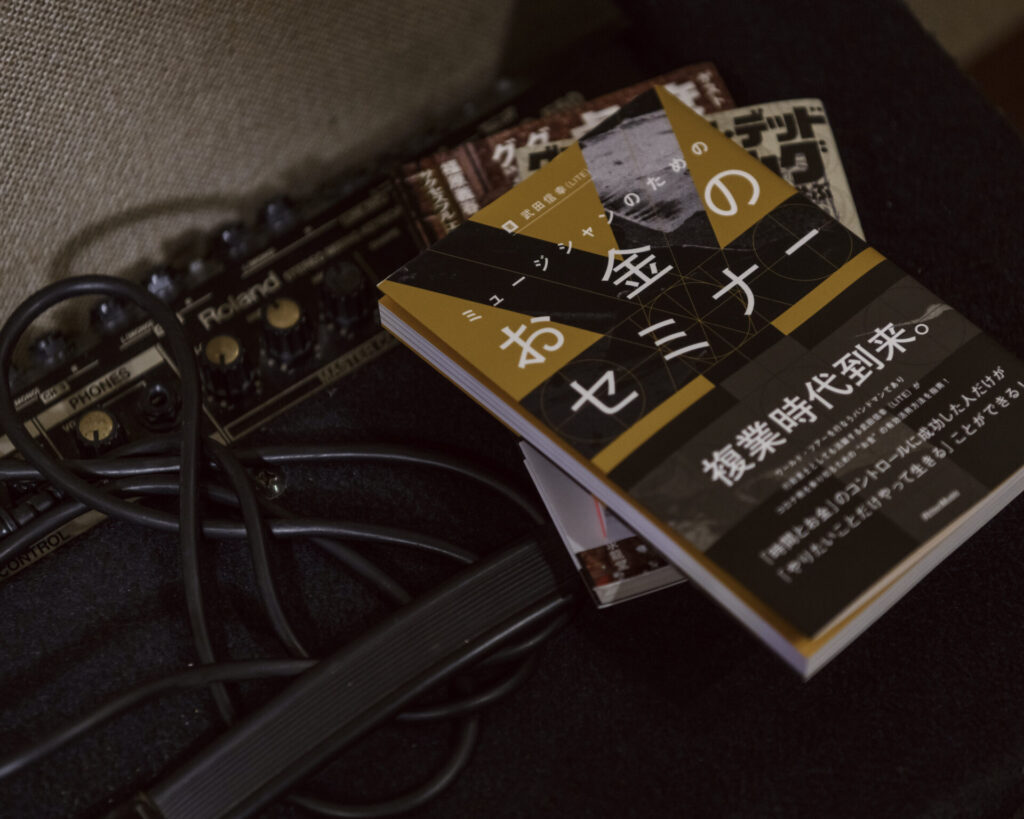
Shigeta: Do you think passion will gradually fade after people spend time on a parallel career?
Takeda: Yes, I am sure that is true. If you want to pursue only your passion, it is probably better to concentrate on one thing. In my case, however, I felt my passion would rapidly decrease if I stayed only as a musician. With the future uncertain, for some reason, I could not raise my motivation to concentrate on a music career. So, I chose to work as an administrative scrivener for my parallel career. Interestingly, the decision dramatically boosted my motivation for both careers. So, I think having a parallel career was the right choice for me. But I think some musicians can maintain their higher passions by only doing music, so I would say the answer varies from individual to individual.
Shigeta: I think many people who say they will do “Rice-Work (Work to Eat)” and “Lifework” in parallel end up giving up on the latter. So, it is difficult to tell if having a parallel career is promising to everyone. Also, it is understandable that some will lose their motivation for “Life Work” once financial stability is in sight. However, I believe music is a genre that everybody can do casually, and experiencing diverse expressions is meaningful. Mr. Takeda, I assume you chose a parallel career to continue to be passionate about doing music as life work, right? That is why you recommend that people be self-employed rather than working for a company that usually has time constraints.
Takeda: A little while after I started my parallel career, I realized one thing. For me, the motivation to support musicians and the motivation to support entrepreneurs as an administrative scrivener are essentially the same. I want to provide support to both musicians and entrepreneurs so that they can continue their music or business careers. Although one is for musicians and the other is for entrepreneurs, what I want to do is the same.
Shigeta: In my twenties, I had many things I wanted to do, but I didn’t know how to collect money to do them. I thought borrowing money from a bank was bizarre, so all I could come up with was earning money from a part-time job. But I am sure that there should have been subsidies even back then, and I could get a bank loan if I made a proper business plan. The thing is, there was nobody around me who could teach me how.
Takeda: You mean, the knowledge of finance was not familiar to you.
Shigeta: It depends on the individual whether having parallel jobs is a good idea, but I feel there lies something like “happiness.”
Takeda: Definitely, there will be a feeling of fulfillment and satisfaction.
Shigeta: Mr.Takeda, after talking with you today, I have a desire to do music and get involved in music once again. If a day were 48 hours, I would like to start playing instruments again. It isn’t easy to spare time right now, though.
Takeda: That’s a great target.
Shigeta: Speaking of the target, I also want to organize a music festival someday entirely based on my personal choices.
Takeda: Today, only such distinctive events can attract people—something so distinctive that people are concerned about whether it will really attract people. Please invite us, we’d love to join.
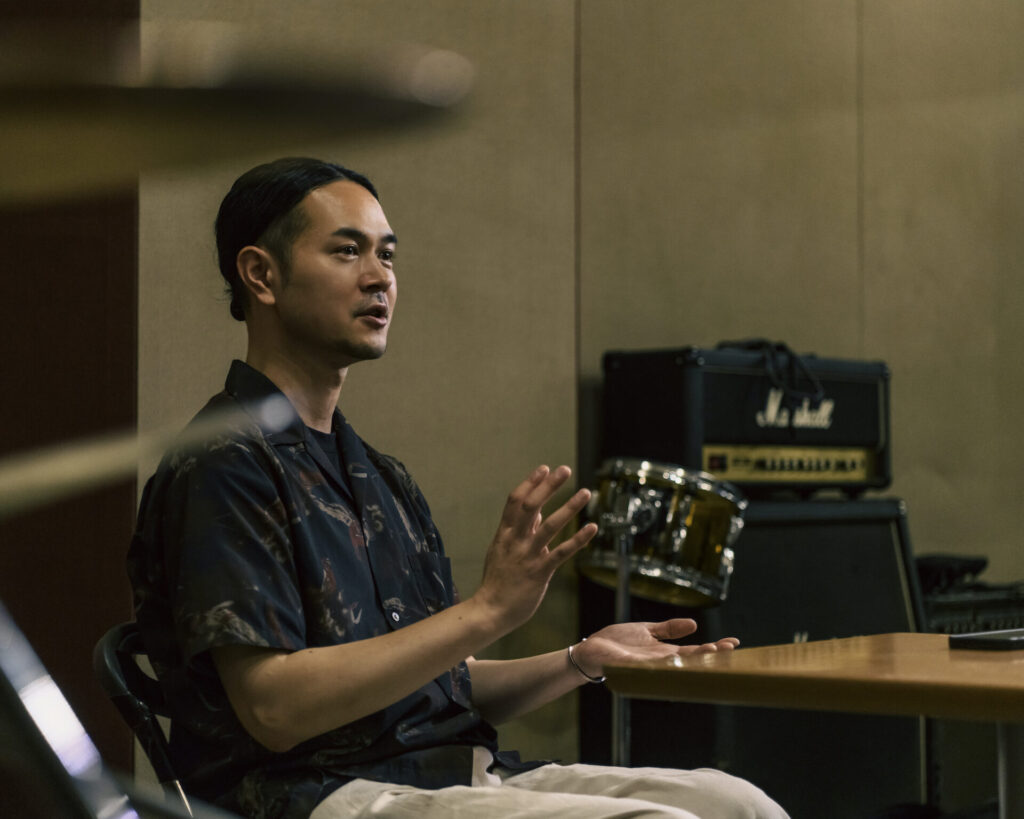
Note:
Marketing Lessons from the Grateful Dead: What Every Business Can Learn from the Most Iconic Band in History
The Grateful Dead, known as one of rock history’s most popular tour bands, attracted fans with their unique “live performance experience.”
They allowed fans to exchange cassette tapes where their performance sound was recorded and edited. From a modern view of marketing, the book analyzes the business model they utilized half a century before the words “for free” or “share” became common. David Meerman Scott and Brian Halligan, both world-renowned marketing specialists, wrote the book. Shigesato Itoi supervises the Japanese version.
Web3 Technology
Web3 is a concept that represents the future image of the Internet with a distributed network system as its core. While specific companies manage most of the data on the Internet today, Web3, which utilizes technologies like blockchain, allows each user to manage the data in an autonomous-distributed way. The technology will enable users to manage digital assets and information more effectively and quickly. NFT(Non-Fungible Token) and DAO (Decentralized Autonomous Organization) are the representative technologies and services included in Web3 technology.
Bond / LITE
Deep Inside / LITE
Profile
-
Nobuyuki Takeda
Born in Chiba in 1981, Takeda formed the instrumental rock band “LITE” in 2003. He is the frontman, guitarist, and vocalist of the band. In addition to appearing at major music festivals in Japan, such as Fuji Rock Festival and Summer Sonic, the band has performed at over 200 events overseas. In May 2024, the band embarked on touring eight European places with their latest album, “STRATA.” Parallel to his music career, Takeda became a licensed administrative scrivener in 2013. He currently serves as a corporate officer at INQ, a Certified Administrative Procedures Legal Specialists Corporation, providing support for venture companies and startups for funding. In addition to his activities as a musician and an administrative scrivener, he also manages real estate investment.
For more information on his journey as a “specialist of parallel career,” refer to his book Musician No Tame No Okane No Seminar (A Money Seminar for Musicians), published by Ritto Music.
-
Masakazu Shigeta
After working as an engineer in the music industry, Shigeta began his career as a cosmetics developer in 2001. Since 2004, he has produced a variety of cosmetics brands in the healthcare business of Nitto Denka Kogyo Co., Ltd., a metal surface treatment company founded by his great-grandfather.
In 2017, he founded “OSAJI,” a skincare lifestyle brand, and became the brand director. He also produced “kako,” a specialized shop for home fragrances perfume in Kuramae, Tokyo, in 2021, and a combined shop of “OSAJI”, “kako”, and a restaurant “enso” in Kamakura, Kanagawa, in 2022.
In 2023, using Nitto Denka Kogyo’s skills, he also produced a pottery brand, “HEGE.”Publications
Taberu Biyou (Eating for Beauty) (SHUFU TO SEIKATSU SHA, 2024)
42-Sai ni Nattara Yameru Biyou, Hajimeru Biyou (Beauty cares to quit and start when you turn 42) (Takarajimasha, 2022)
Information
Musician No Tame No Okane No Seminar (A Money Seminar for Musicians)
A book written by Takeda and published in December 2020.
The book introduces why Nobuyuki Takeda, the guitarist of the world-famous rock band LITE, decided to obtain a license as an administrative scrivener and start supporting startups for funding. With the author’s experiences, the book also gives a how-to for the subsidies and grants for artists. The book is worthwhile to read as a how-to book to avoid giving up what people want to do because of money as well as a guidepost for parallel work.
LITE
LITE is a four-piece instrumental rock band formed in 2003. Their unique progressive sound attracted hardcore music fans. In 2006, they contracted with a U.S. indie label. Since then, except during the COVID-19 pandemic, they have toured abroad every year in America, Europe, and Asia. In 2021, LITE provided music for a movie, “Kiba: The Fangs of Fiction,” starring Yo Oizumi. They released their 7th album, “STRATA,” in January 2024 and broke new ground on the year of the 20th anniversary by incorporating Japanese rap and vocals into their sound. The live version of “STRATA” was released this May.
https://lite-web.com
-
Photographs:Eisuke Komatsubara
-
Text:Masahiro Kamijo
NEWS LETTER
理想論 最新記事の
更新情報をお届けします
ご登録はこちら
ご登録はこちら
メールアドレス
ご登録ありがとうございます。
ご登録確認メールをお送りいたします。
